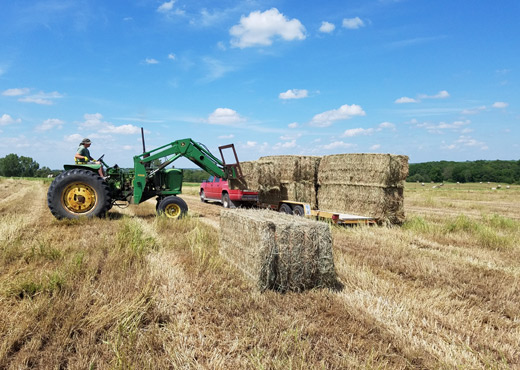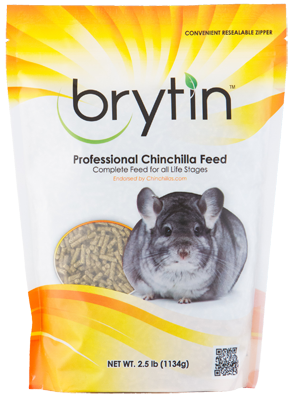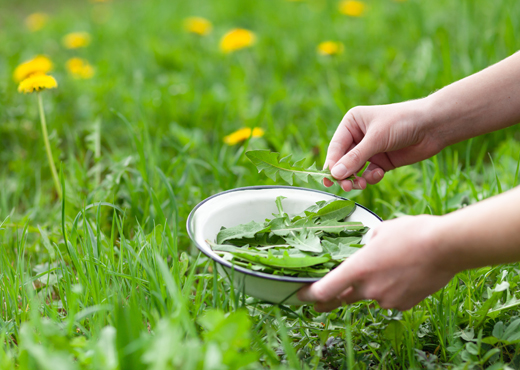Chinchilla Hay, Feed, and Supplements

Western Timothy pollinating at the Chinchillas.com facility in northeast Kansas
Chinchillas should be given a regular diet of grass hay, high quality balanced chinchilla pellets, supplements as needed, and clean fresh water.
 Chinchillas tend to do especially well on Western Timothy grass hay. Regardless of which grass hay you feed; Timothy, brome, orchard grass, coastal, or Bermuda, etc..., make sure the hay is free of mold and any other contaminants. Store the hay off the ground in a cool dry place that rodents cannot get to. They should have loose hay available regularly. It is important to note that Alfalfa, clover, and vetch are not grass hays, they are legumes. Legumes are much higher in protein than grass hay. Red clover tends to be high in estrogen as well. Legume hay like alfalfa does have its place in chinchilla diets, but its use should be limited and closely monitored. Alfalfa can be used to supplement a pregnant or lactating female who may be getting behind on milk production or condition, or a female with a large litter or closely spaced litters. The calcium in alfalfa can act as a buffer against ulcers, but its mitigating effects only last for approximately 6 hours. If the objective is to help alleviate ulcers, very very small amounts of alfalfa should be fed frequently. Alfalfa can be used carefully in other situations as well, but watch for loose droppings and consider that alfalfa can have twice as much protein, or more, than chinchillas normally require. Excessive amounts of protein can tax the kidneys and excessive amounts of alfalfa can lead to gastrointestinal upset.
Chinchillas tend to do especially well on Western Timothy grass hay. Regardless of which grass hay you feed; Timothy, brome, orchard grass, coastal, or Bermuda, etc..., make sure the hay is free of mold and any other contaminants. Store the hay off the ground in a cool dry place that rodents cannot get to. They should have loose hay available regularly. It is important to note that Alfalfa, clover, and vetch are not grass hays, they are legumes. Legumes are much higher in protein than grass hay. Red clover tends to be high in estrogen as well. Legume hay like alfalfa does have its place in chinchilla diets, but its use should be limited and closely monitored. Alfalfa can be used to supplement a pregnant or lactating female who may be getting behind on milk production or condition, or a female with a large litter or closely spaced litters. The calcium in alfalfa can act as a buffer against ulcers, but its mitigating effects only last for approximately 6 hours. If the objective is to help alleviate ulcers, very very small amounts of alfalfa should be fed frequently. Alfalfa can be used carefully in other situations as well, but watch for loose droppings and consider that alfalfa can have twice as much protein, or more, than chinchillas normally require. Excessive amounts of protein can tax the kidneys and excessive amounts of alfalfa can lead to gastrointestinal upset.
 Chinchillas should be free-fed a regular diet of high quality chinchilla pellets. Freeze any portion that won't be used immediately. Chinchillas eat an average of 2 tablespoons of high quality pellets per day, but this amount can vary. Don't use rabbit feed, or feed that will encourage 'digging' like feeds containing colored feedstuffs, banana chips, or seeds. Breeders especially should be concerned about diet quality. A common condition when using a poor quality feed is 'overnutrition of the animal.' This terms refers to an animal whose condition is reflective of too many poor quality macronutrients, and not enough high quality micronutrients. Invest in the health of your animals. Their well being, their immune systems, and the health of their offspring depend on it. Cheap feeds are not cheap in the long run.
Chinchillas should be free-fed a regular diet of high quality chinchilla pellets. Freeze any portion that won't be used immediately. Chinchillas eat an average of 2 tablespoons of high quality pellets per day, but this amount can vary. Don't use rabbit feed, or feed that will encourage 'digging' like feeds containing colored feedstuffs, banana chips, or seeds. Breeders especially should be concerned about diet quality. A common condition when using a poor quality feed is 'overnutrition of the animal.' This terms refers to an animal whose condition is reflective of too many poor quality macronutrients, and not enough high quality micronutrients. Invest in the health of your animals. Their well being, their immune systems, and the health of their offspring depend on it. Cheap feeds are not cheap in the long run.
Herbivores like chinchillas have a microbiome that adapts to their diet. When the diet changes, so does the microbiome. The microbiome needs time to do this. If the diet is changed too abruptly, the chinchilla can suffer from intestinal dysbiosis and illness. Switch from one brand of feed to the next, or from one type of hay to the next, slowly - over the course of 7-10 days.
Some breeders choose to supplement their chinchillas' diet. If you choose to offer your chinchillas a supplement, do not displace a significant percentage of the chinchillas' pelleted diet (generally a complete feed). Some common supplements are dried or fresh (not sprayed) dandelions, Calf Manna, rolled oats, flax seed, and kelp. Know what you are feeding and how much is safe, or you can do more harm than good.  Dandelion greens are high in inulin, a dietary fiber, and are an excellent natural source of prebiotics and antioxidants. Don't feed too much at once, and be careful to pick dandelions from an organic farm or a location which is free from chemicals (dandelions are commonly sprayed with herbicides). Calf Manna has been used for decades by chinchilla breeders, generally for pregnant and lactating females who are struggling to keep up. It was originally formulated for cattle, although it is used for several species. Be very cautious not to overfeed it, and perhaps consult with your herd vet or nutritionist regarding whether to use it, and how much to use. A few oats can be fed as a treat or appetite stimulant, but they are grains and should be fed sparingly. Oats are often selected as a crop when traditional farms are converted to organic farms, because oats are good at absorbing toxins from the soil. Therefore, non-organic oats can be high in toxins. If you do feed oats occasionally, it is better to use organic oats. Flax seeds are an excellent source of Omega 3 fatty acids. Flax seed can be fed whole or ground. If you use ground flax seed, make sure it is not ground more than 12 hours prior to feeding. Some of the nutrients in flax seed start to break down as soon as the seed is ground. Kelp is a good source of naturally occurring iodine and micronutrients, but be careful with iodine. Iodine can be toxic at too high of a level. Last, chinchillas benefit from vitamin C, prebiotics, and probiotics, especially during times of stress or travel.
Dandelion greens are high in inulin, a dietary fiber, and are an excellent natural source of prebiotics and antioxidants. Don't feed too much at once, and be careful to pick dandelions from an organic farm or a location which is free from chemicals (dandelions are commonly sprayed with herbicides). Calf Manna has been used for decades by chinchilla breeders, generally for pregnant and lactating females who are struggling to keep up. It was originally formulated for cattle, although it is used for several species. Be very cautious not to overfeed it, and perhaps consult with your herd vet or nutritionist regarding whether to use it, and how much to use. A few oats can be fed as a treat or appetite stimulant, but they are grains and should be fed sparingly. Oats are often selected as a crop when traditional farms are converted to organic farms, because oats are good at absorbing toxins from the soil. Therefore, non-organic oats can be high in toxins. If you do feed oats occasionally, it is better to use organic oats. Flax seeds are an excellent source of Omega 3 fatty acids. Flax seed can be fed whole or ground. If you use ground flax seed, make sure it is not ground more than 12 hours prior to feeding. Some of the nutrients in flax seed start to break down as soon as the seed is ground. Kelp is a good source of naturally occurring iodine and micronutrients, but be careful with iodine. Iodine can be toxic at too high of a level. Last, chinchillas benefit from vitamin C, prebiotics, and probiotics, especially during times of stress or travel.
Chinchillas do enjoy treats, but give them sparingly. Chinchillas can have a raisin, a sliver of dried apricot, or a small unsweetened dried cranberry as an occasional treat.
Offer fresh clean water at all times. Water bottles can be sterilized in a dishwasher. Clean the inside of bottles, tubes, and stoppers regularly, and change water at least once every 2-3 days. Use distilled water when transporting your animals, or if you are unsure of the bacteria/chlorine levels in your tap water. If you use automatic waterers, flush lines regularly. Chinchillas are far more susceptible to contaminants than people are. Be aware that baby chinchillas can drown in water bowls, so use shallow dishes, valve systems, or bottles with tubes. If open water bowls are used, the water will need to be changed daily. Give your chinchilla time to learn to use a bottle if it came from a place that used automatic watering systems or any other kind of watering source. Open dishes of water should be used while a chinchilla is learning how to use a new watering method. Hang bottles in such a way that the chinchilla cannot chew the bottle or the cap. Chinchillas drink about 2 ounces of water a day, but it varies with age and pregnancy.